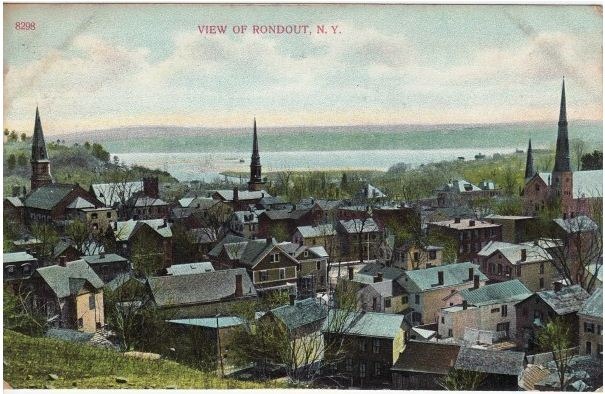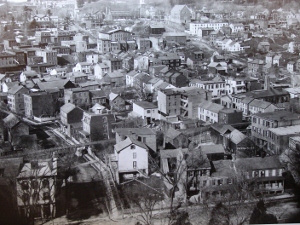This letter is an account of Revolutionary War activities at Battery Park, New York City in the summer of 1775, written to Kingston resident and Revolutionary War hero, Charles DeWitt from Daniel Graham.
Kingston August 27 1775
Sir
Rec’d your of yesterday date & observe the contents– Mr. Will’m Eltinges son John is come home from N York which place he left Thursday at 5 in the evening, by whom we have an exact account of what happened between the King ship in that harbour and the citiseans there– the Congress (it seems) had agreed that the cannon on the Batery should be Removed which they agreed to do with the greatest secrecy, but such is the unhappy Situation of the City that there is nothing can be keep a secret even in the Congress itself– however on Wednesday at 10 or 11 o’clock at night the people went in order to move the cannon, but soon was discovered and fired on by the Asias Barge, which was Imediately Returned by our people briskly– soon after the Man of War began to play upon them, one man in the barge is killed, 3 of our people wounded but likely to do well, after a considerable Fiering upon the City and Batery and doing a good deal of damage to Sundry Houses the Fiering cesed till morning when the Cap’t of the Asia sent a letter ashore to the Major of the City to know whether it was sense of the Congress that the cannon should be removed or only a party of men with out the direction of the Congress, but Rec’d no answer– He sent a second letter and had no answer- he sent a 3d and Declared if he was not answered he would on Friday Morning set Fier to the City– we have no account since that Time– Cap Jn’o Elmendorf was to set out for home from N York yesterday by whom I expect shall have further accounts of the Matter- Eltinge says the City was in the utmost Confusion– Women & children moving out with all speed– the people however moved the cannon from the Batery and have secured them– It is thought that the Rev. Aughmoteys son and Sheriff Roberts son aquainted the Man of War of the Removing the cannon from the Batery as those (illegible) gentlemen ar missing since that time and not to be found– as soon as any other (damaged text) to Town I will endeavour to let you know, for if no news comes then what is at present I will at all events go down this week for you– know the port will be shut on the 10 of the next month– which is all at present
From Sir your very humble Serv’t
Dan’l Graham


